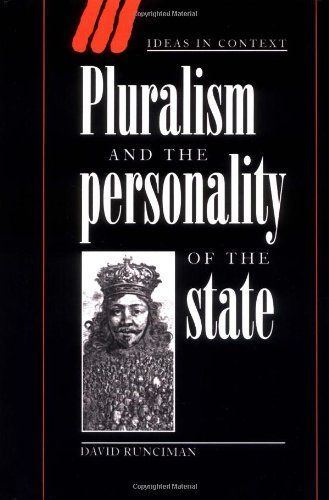
Pluralism and the Personality of the State
Set against the broad context of philosophical arguments about group and state personality, Pluralism and the Personality of the State tells, for the first time, the history of political pluralism. The pluralists believed that the state was simply one group among many, and could not therefore be sovereign. They also believed that groups, like individuals, might have personalities of their own. The book examines the philosophical background to political pluralist ideas with particular reference to the work of Thomas Hobbes and the German Otto von Gierke. It also traces the development of pluralist thought before, during and after the First World War. Part Three returns to Hobbes in order to see what conclusions can be drawn about the nature of his Leviathan and the nature of the state as it exists today.